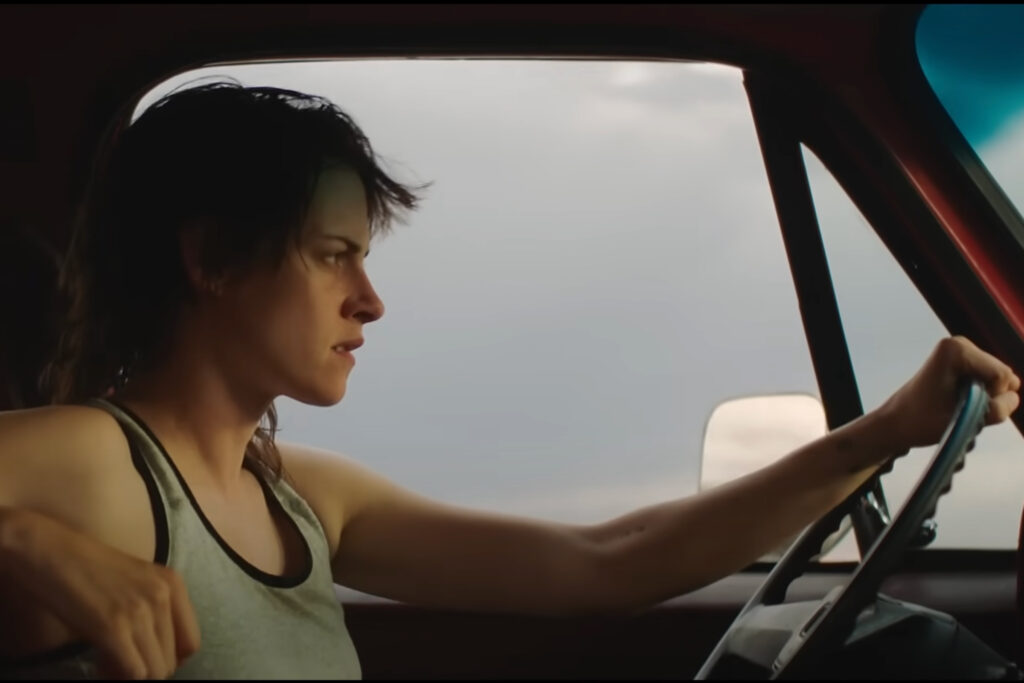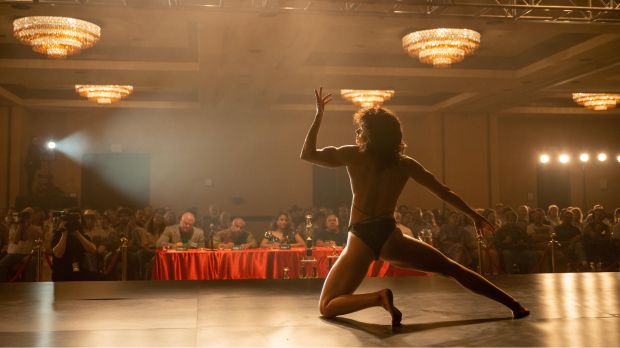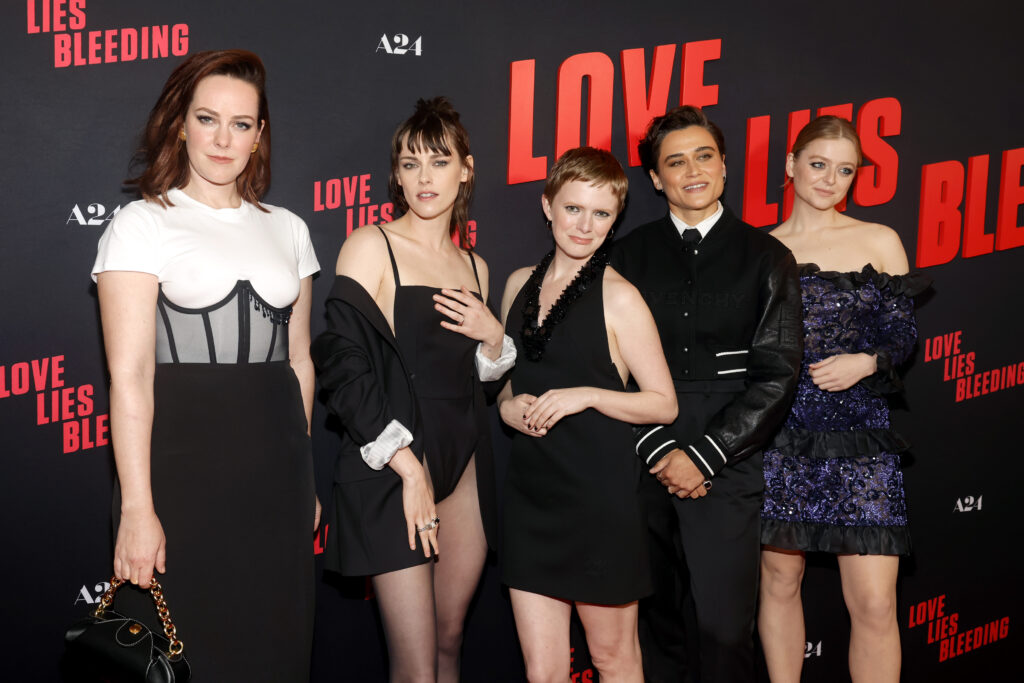‘Love Lies Bleeding’ and the Limits of the Inclusive Gaze
The lesbian thriller seeks to subvert the so-called ‘male gaze.’ It’s not particularly successful.

The term “the male gaze” is often used to criticize voyeuristic storytelling. According to film theorist Laura Mulvey, it implies that filmmakers depict women with minimal agency, only employing them for superficial or sexualized reasons. Ms. Mulvey’s 1989 essay describing this concept, “Visual and Other Pleasures,” was elicited and inspired by the second wave feminism of the 1970s.
In an effort to make the gaze more “inclusive,” academics began in the 1990s to invoke the idea of the female or the queer gaze. This twist on “the gaze” has been used in art to ironic effect, in order to appease certain critics. Only in sexually-charged films ranging from 2019’s “Portrait of a Lady on Fire” to “Love Lies Bleeding,” in theaters now, it has become fashionable to subvert the gaze further, ultimately becoming earnest in intent.
This new idea of the gaze is deeply ideological, but also accidentally reactionary, when it indulges itself by taking into account minority spectatorship. Suddenly, being titillated is okay, so long as men aren’t watching. “Love Lies Bleeding” hopes to occupy this rarefied niche. So far, it may have reached its target, with one person on Twitter saying that “it wasn’t made for” straight men.
Set in 1989, The film features Kristen Stewart as Lou, a gym manager who is not on good speaking terms with her menacing father, Lou Sr (Ed Harris) and is annoyed by her brother-in-law, JJ (Dave Franco). She falls in love with a ripped bodybuilder named Jackie (Katy O’Brien of “The Mandalorian”), who works for Lou Sr at his shooting range and is on her way to an elite competition at Las Vegas. Yet as Jackie gets more involved with the family, things get very complicated, divulging the dark secrets behind the rift between Lou and her father.

Following her solid debut, “Saint Maud,” director Rose Glass, with “Love Lies Bleeding,” has created an an erotic neo-noir film that owes a debt to Quentin Tarantino and David Lynch, particularly to their work in “True Romance” and “Wild at Heart.” While Ms. Glass mentions these influences in interviews, “Loves Lies Bleeding” reminds me more of “Pain and Gain” and “Monster,” with the former using gym aesthetics as its exploitative backdrop and the latter having a same-sex relationship at its core, at the expense of weak and hapless men. “Pain and Gain” works because of its biting satire on consumer culture through shallow incentives, and “Monster” succeeds by depicting a serial killer who is emotionally wounded by the men around her.

In the hopes of drilling down into the darkness of middle America, “Loves Lies Bleeding” falls short of having that kind of finesse. Yet there are aspects of Ms. Glass’s film that are illuminating on their own terms. She brings back the shocking body horror of “Saint Maud” with an impactful aesthetic. Part of that is seeing Lou having maniacal visions of her father, which are drenched in red and black, or Jackie’s transformation as she injects hormones into her muscular body. Ms. Stewart brings a more believable performance and is wickedly deadpan throughout. Her best moments come not with the scenes which she shares with the brute Ms. O’Brien — who is quite magnetic — but from her interactions with Daisy — Anna Baryshnikov — who steals the show with a morbid hilarity. Ed Harris — who previously appeared in “Pain and Gain” — is frightening and charismatic as Lou Sr, the patriarch who also owns his daughter’s gym.
Yet the friction between Lou and her father is not that interesting, no matter how much it’s dressed in bold color schemes. It leads to predictable revelations, topped with the cheesy special effects, saved for the last minute. Even then, it’s the least of the film’s issues overall, in comparison to Ms. Glass trying to distance her work from the male gaze, by attempting to engage a minority — gay women.
Only beneath the surface, you’re asking, what’s the point of all of this? “Loves Lies Bleeding” wishes to be scandalous and shocking, yet its attempts at pathos fall short. As a character, Jackie is shockingly one-dimensional: her own destiny is to win a bodybuilding competition, and her only happiness is either with Lou or with her own body. As she’s posing on screen, are we supposed to feel alienated by that transmogrification or should we be titillated — at least that’s how one man felt before getting arrested? Either way, it doesn’t succeed because the conflict overall lacks a lot of depth.

“Love Lies Bleeding” wears many genre influences on its sleeves, with some interesting elements that all add up to something uninspired and meek. However, the film demonstrates how the subverted gaze is the equivalent of a two-factor authenticator you used to log in to an app. Say what you will about the male gaze, but at least it achieves its mission instantly.

